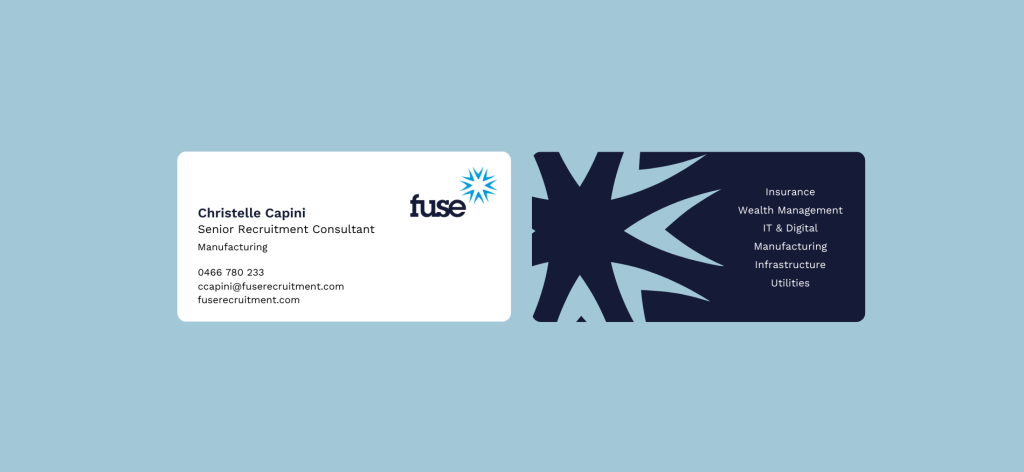10 Ways to actually impress the hiring manager during a job interview
You’ve tailored your resume to the job and cleaned up your LinkedIn to look as attractive as possible. Now your hard work has paid off and you’ve landed yourself an interview. Congratulations! You look good on paper, but can you demonstrate yourself well in person? You want to be remembered … for good reasons! Give…
You’ve tailored your resume to the job and cleaned up your LinkedIn to look as attractive as possible. Now your hard work has paid off and you’ve landed yourself an interview. Congratulations!
You look good on paper, but can you demonstrate yourself well in person? You want to be remembered … for good reasons! Give yourself the best chance to set yourself apart from the other applicants by taking our advice below.
Good luck!
1. Research the company and your interviewer.
If the interviewer asks if you know anything about the company and you don’t, that’s a quick and easy way to show you’re not that interested in the job. Doing research on the company will help you prepare relevant questions and give you a better idea of whether the job is right for you.
Visit the company’s website, LinkedIn and other socials to get a better understanding of their culture, what their products and services are, and what problems they may be trying to solve.
Hop on your interviewer’s LinkedIn and read their bios, look at their experience and see if you share any common interests. Doing your research on the interviewer will help you build rapport, which in turn will make you more memorable than other interviewees. It also gives you a better idea of who you might be working with.
2. Understand the culture.
Hiring someone who doesn’t align with company culture is a risk. A culture mismatch can adversely affect an employee’s performance and can ultimately lead to early resignation – both of which are not helpful to the new employee or the company.
Show you’re the right fit by using your understanding of the culture when trying to figure out what to wear and how to behave in the interview.
Again, have a look at their social media channels and look at the language used in the job ad.
3. Demonstrate your relevant experience and use examples.
Prepare to be asked to expand on some of the experience you’ve listed in your resume. Look at the job description, understand what the role entails and use these to guide how you answer the question.
For example, you may be asked to “tell us more about your experience at Company X.” If you’re applying for a sales role, demonstrate how your experience at Company X will help sell a product or how you’ve been able to manage key stakeholders.
If you’re a graduate with limited experience you can use experience that shows you have the transferrable skills to perform well in the role.
4. Prepare ideas that show initiative.
Like our previous point, do your research on what the role is about and what will be required of you if you are successful in landing the job. Have a look at the company and see what problems they’re trying to tackle. If it isn’t clear, this could be a good question to ask in the interview.
Find times in your career when you’ve had to take the lead in solving a problem or when you had a new idea. You may even have a solution for some of their problems too.
Try to keep it relevant to the role where possible.
5. Show enthusiasm.
If you’ve ticked all the boxes above, you’re on the right track to showing the hiring manager that you’re keen and interested. Being prepared is the first step. Talking about why you want the role is the second.
Your cue? You may be asked why you want the job. If not, you may be asked to tell the interviewer more about yourself. Start with your previous experience and then talk about how it has led you to apply for this role. Keep it positive and mention things that are specific to the company – not just the role.
6. Ask well-thought-out questions.
A fast way to make a bad impression is to come to the interview with no questions prepared. Show your enthusiasm and preparation by asking relevant, interesting, and open-ended questions. Yes or no questions are fine but consider asking open-ended questions which can lead to great conversations.
Come up with questions that will help you assess whether the job is right for you or to help you get a better understanding of their problems.
Another thing you can do is wait to ask questions that arise during the interview until the end. This will show that you have been listening and you are engaged.
7. Demonstrate that you’re easy to work with.
Hiring managers don’t want someone who’s going to make life harder for them and their team. Look at your experience and show how you’ve worked with your previous coworkers and managers. Talk about how you’ve given and received feedback, how you’ve handled conflict and how you manage your work when working in a team.
8. Articulate exactly why you want the job.
Have a look at the company’s mission, values, competitors, product and service offerings, and their target audience. Tie these in with the role you’ve applied for and talk about why certain aspects make you want the job.
You can make your point clearer by comparing this job to previous roles you’ve had. Just remember that this isn’t the time to complain about previous roles or bad-mouth old managers.
9. Show you’re paying attention.
The interviewer will tell you more about the role and the type of person they’re looking for during the interview. Try to explain how your skills and experience relate to the points that they’ve mentioned. Bonus points if you ask questions about what they’ve said.
Body language also factors in showing your engagement and is critical in leaving a good impression. Make sure to maintain eye contact, face the person speaking to you, nod to show you understand what they’re saying and lean in a little instead of leaning back into your seat.
10. Relax and be yourself.
It may sound silly but be prepared to explain your experience. No one knows better than you what your experience looks like. But can you explain what you do when asked on the spot? Maybe you can but it can be easy to forget what to say when you’re nervous. Know exactly what skills and abilities you want to showcase. Being prepared will help with the nerves.
Finally, be yourself! Dress how you would on the first day and don’t act or pretend to be someone you’re not. You don’t want there to be any misconceptions of what you may be like when you’re actually on the job. As we’ve mentioned above, a culture misfit isn’t good for anyone. And can you really uphold a fake character forever?
If you’re currently looking for a new role, visit our job page to see other opportunities that may spark your interest.







